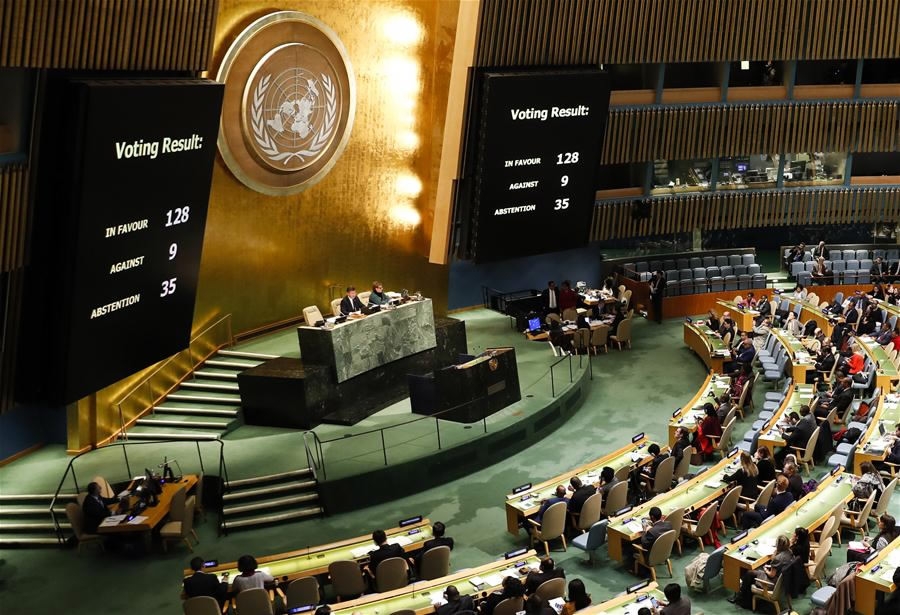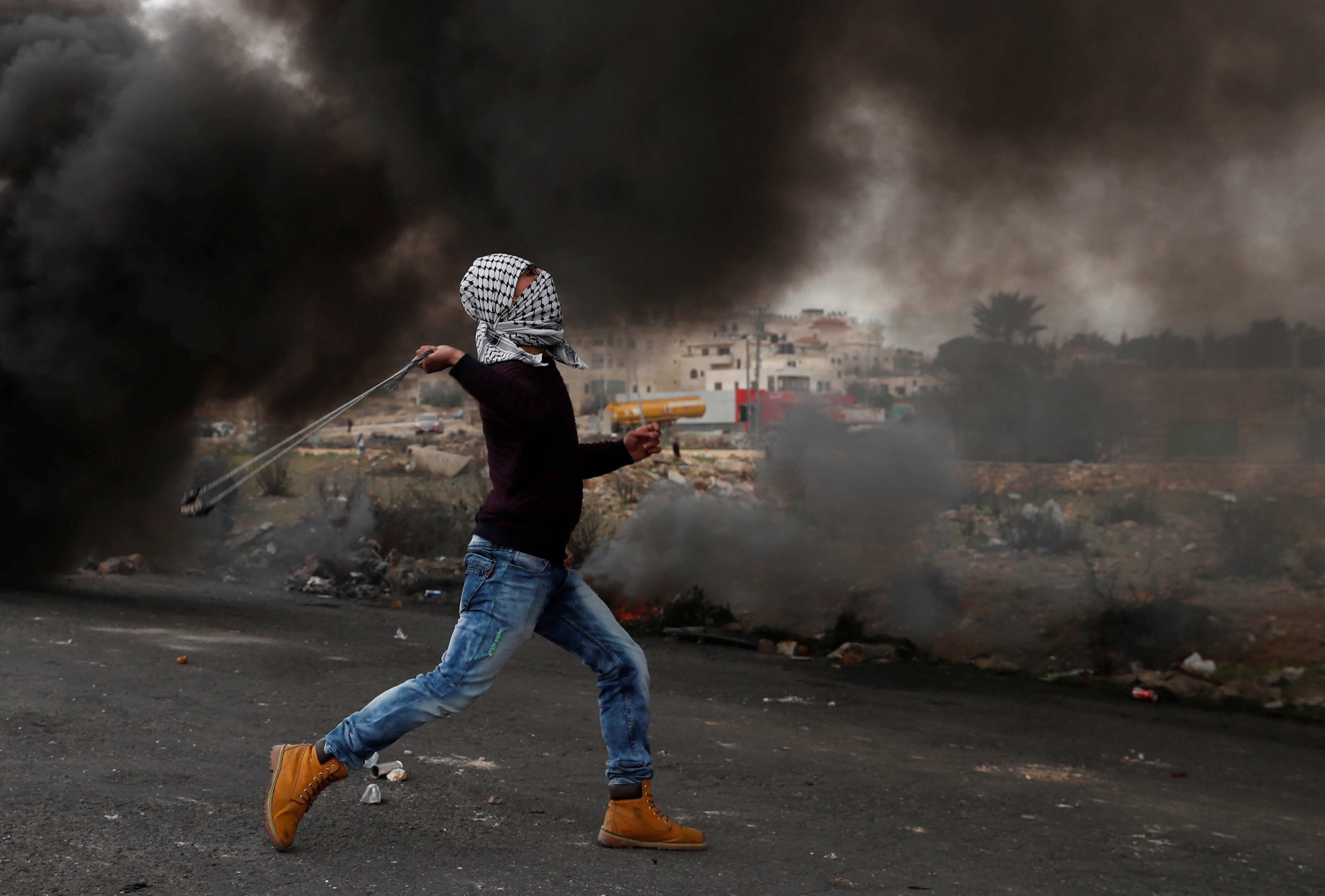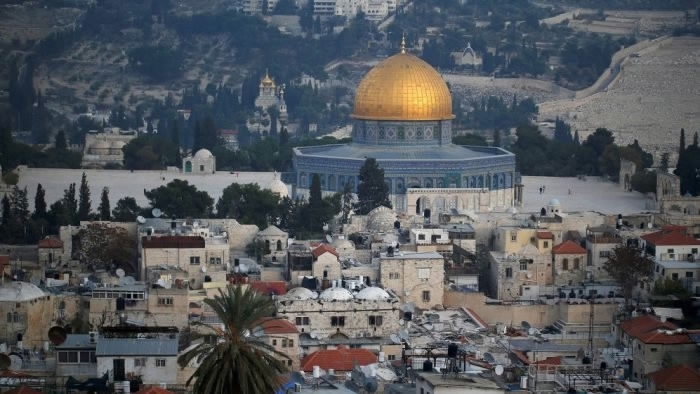In a bid to raise its profile in Middle East, especially in Arab world, China’s foreign ministry held a meeting between the Israel delegation led by Zionist Union MK Hilik Bar and Palestine delegation led by its presidential adviser on international affairs Nabil Shaath Dec. 21. The meeting, organized by the China foreign ministry in Beijing, was named the “Palestinian-Israeli Peace Symposium”, and shows China’s cautiousness over the sensitive Israel-Palestine peace talks.
The “Palestinian-Israeli Peace Symposium” was organized after US President Donald Trump’s declaration of “recognizing Jerusalem as the capital of Israel.” China hopes to clarify that it supports the establishment of a “fully sovereign” Palestinian state on the basis of the 1967 borders, with East Jerusalem as its capital. China understands the Islamic states’ concern about the status of Jerusalem and calls for a resolution to the issue in accordance with the relevant UN resolutions and international consensus.

Photo taken on Dec. 21, 2017 shows the general view of a rare emergency special session of the United Nations General Assembly at the UN headquarters in New york. The General Assembly on Thursday adopted a resolution on the status of Jerusalem that will make US President Donald Trump's decision to recognize Jerusalem as the Israeli capital have no legal effect. Xinhua Photo
Photo taken on Dec. 21, 2017 shows the general view of a rare emergency special session of the United Nations General Assembly at the UN headquarters in New york. The General Assembly on Thursday adopted a resolution on the status of Jerusalem that will make US President Donald Trump's decision to recognize Jerusalem as the Israeli capital have no legal effect. Xinhua Photo
The choices of the representatives of Israel and Palestine that attended the “symposium” in Beijing are interesting. The head of Israel's delegation, MK Hilik Bar, comes from the Labor Party, a major opposition party in the Israeli parliament. Mr. Hilik Bar ranks sixth in the Labor Party, and his political influence inside the existing Israel government is limited.
Meanwhile, the Palestinians showed their sincere attention to this symposium in Beijing. The head of the Palestine delegation, Nabil Shaath, is the presidential adviser on the international affairs and enjoys significant influence inside Palestine society and over Palestine Authority leader Mahmoud Abbas. Ahmed Majdalani, a member of the Palestine Liberation Organization (PLO) central committee and a close associate of Palestinian president Mahmoud Abbas, also participated in this symposium in Beijing.
China attaches great importance to the peace negotiation between Palestine and Israel, and views the Palestine-Israel conflict as the “deeply-rooted” problem in modern Middle East region. In his meeting with Israel Prime Minister Benjamin Netanyahu last March, Chinese president Xi Jinping maintained that the coexistence between Israel and Palestine would benefit everyone. “A peaceful, stable and developing Middle East serves the interests of all, including China and Israel.”
After Trump’s declaration of “recognizing Jerusalem as the capital of Israel”, Palestinian leaders are eager to seek the international support to “de-legalize” Trump’s decision and to find a proper international actor to replace US as the mediator for Israel-Palestine peace talks. From the Islamic Organization Conference summit in Istanbul last week to the United Nations Congress this week, Palestine hopes to gather international support and press the US and Israel to “withdraw” or suspend their claims over Jerusalem.

A Palestinian protester throws a stone during a protest against US President
Donald Trump's decision to recognize Jerusalem as the capital of Israel, near
the Jewish settlement of Beit El, near the West Bank city of Ramallah December
21, 2017. Reuters Photo
A Palestinian protester throws a stone during a protest against US President
Donald Trump's decision to recognize Jerusalem as the capital of Israel, near
the Jewish settlement of Beit El, near the West Bank city of Ramallah December
21, 2017. Reuters Photo
It is against this backdrop that the Palestinian Authority sent a high-level delegation to Beijing to seek understanding and help from China. On the contrary, Israel believes Trump’s Jerusalem decision “reflects the political reality”, and maintains that the “reality of Jerusalem” should be the foundation for future Israel-Palestine peace. Jerusalem has been controlled and occupied by Israel since 1967, yet Israel actually lacks the desire to attend diplomatic talks and negotiations with Palestine.
Once the “heart of the Middle East conflict”, the importance of Palestine-Israel peace has significantly faded during the past few decades due to the rising nationalist sentiment in different Middle East nation states. Although all Arab and Islamic states sympathize the Palestinians, the leaders of different Arab and Islamic states are more concerned with their own national agenda. Meanwhile, Russia, France, Germany, even Jordan and Egypt, lacks the sincere desire to get involved with the Israel-Palestine peace talk. The complexities in the Israel and Palestine political arena, the sensitivity of related issues such as the status of Jerusalem, the refugee settlement, and the border, will significantly damage the diplomatic reputation of any possible mediator in the Israel-Palestine peace talk.
China should refrain from getting directly involved with the Israel-Palestine peace negotiations, given the fact that China still lacks the capabilities and knowledge to help facilitate the peace process for Israel and Palestine. China should continue to play a constructive role, rather than directive role, in the Middle East peace process.
(Wang Jin is a PhD candidate at the University of Haifa’s School of Political Science, and a research fellow at the Syria Research Center of Northwest University. The article reflects the author’s opinion, not necessarily the views of CGTN.)




